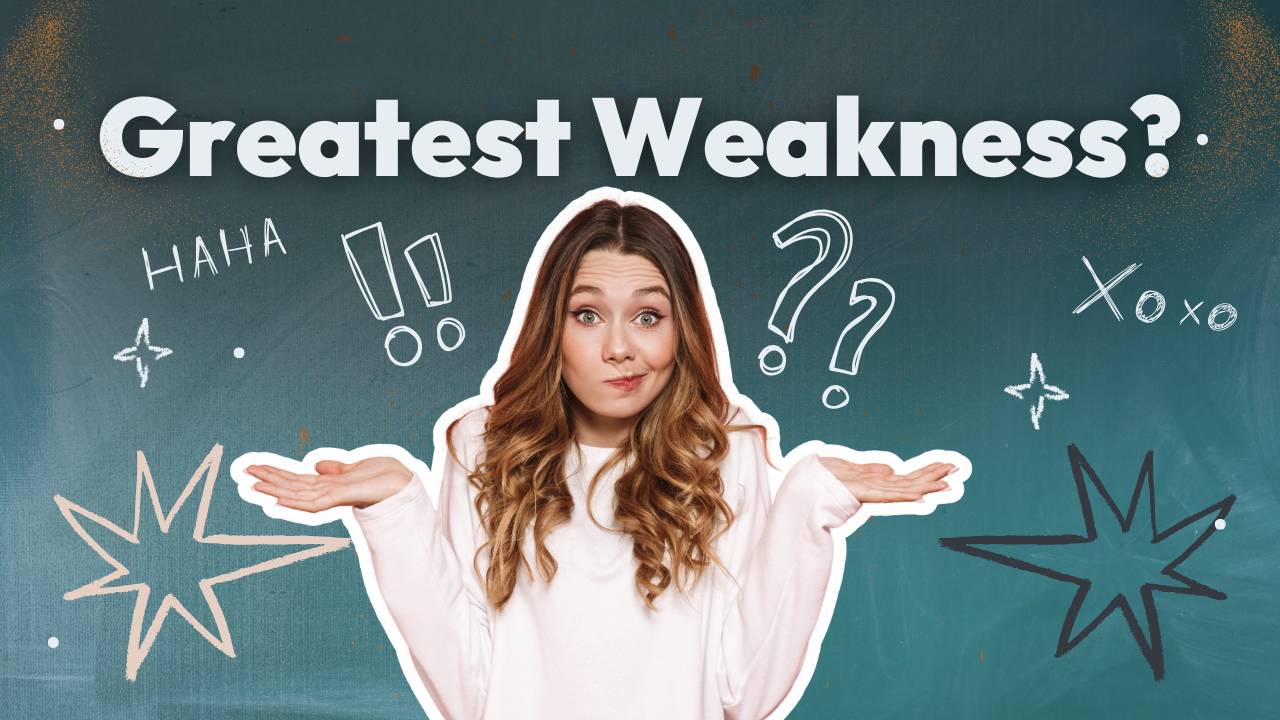How to Answer “What Is Your Greatest Weakness?” in a Teacher Interview (Without Undermining Yourself)
May 27, 2025
In 2018, I was applying for my very first teaching position. I had my degree, my student teaching experience, and my heart completely set on landing the right job.
But there was one major problem—I had no idea how to prep for a teacher interview. And back then? There were hardly any resources online specifically tailored to teachers and what they might be asked.
I remember stumbling across a blog post that mentioned how to answer the dreaded interview question:
“What is your greatest weakness?”
That one blog post changed how I approached interviews. Over the years, I’ve refined that approach, coached countless teachers through this question, and even built a proven strategy to help you answer it with confidence and clarity—without sabotaging your chances.
Here’s how to tackle one of the most misunderstood teacher interview questions and turn it into an opportunity to stand out.
First, Let’s Talk Mindset
What It Sounds Like:
“What is your greatest weakness?”
What It’s Really Asking:
- Are you self-aware?
- Can you grow from feedback?
- Will you be coachable and collaborative?
- Can you reflect without spiraling?
This isn’t a trick question. It’s an opportunity to show how you've adapted and turned a challenge into a strength—what I like to call your “It Factor.”
The Wrong Way to Answer
Let’s start with some common missteps that can derail your interview:
- “I’m too young.”
- “I’m brand new.”
- “I’m too old.”
- “I just care too much.”
These answers either draw attention to a perceived flaw without context, or they try to disguise a strength as a weakness without real substance. Worst of all, they don't explain what you’ve done about the weakness.
What hiring teams are really listening for is growth, reflection, and initiative. That’s where your strength lies.
The Right Way to Answer
Step 1: Identify a Real Weakness
Pick something honest—but not mission critical. You don’t want to say you struggle with classroom management or collaboration if that’s 90% of the job.
Choose something like:
- Struggling with pacing
- Taking on too much
- Overplanning
- Being a perfectionist
- Being new to the profession
Step 2: Show What You’ve Done About It
Talk about the steps you’ve taken to improve in that area. This shows growth, problem-solving, and resilience.
Step 3: Frame It as a Strength
Connect your weakness to something that actually helps you serve students, contribute to a team, or show up in a way that matters.
Real-Life Examples of Turning a Weakness into a Strength
- Too Young / New to Teaching
“As a first-year teacher, I’m constantly seeking feedback and professional development. I bring fresh energy and a deep understanding of new strategies from my teacher prep program.” - Too Old / Career Switcher
“As someone coming from another profession, I bring project management and team leadership experience that help me stay organized and contribute to a team in meaningful ways.” - Too Nice / Soft-Spoken
“I’ve learned how to be firm but fair, and my ability to build relationships through empathy has helped me manage student behavior with consistency and care.” - Disability or Learning Difference
“My own experiences give me a unique ability to relate to students who learn differently. I can advocate for them and design lessons with accessibility in mind.” - Perfectionist
“I used to spend hours perfecting every detail of a lesson, but I’ve learned to focus on impact over perfection—and it’s made me more responsive and flexible with students.”
Sample Answer Template
“One area I’ve worked on is [insert challenge]. At first, this looked like [brief example], but I realized I needed to [what you did to improve]. Since then, I’ve [progress/result]. What I’ve found is that this has actually helped me [insert strength]. For example, [example that ties it together].”
Recap: How to Answer “What Is Your Greatest Weakness?” in a Teacher Interview
Let’s break it down:
- Shift your mindset: This isn’t a trap—it’s a chance to shine.
- Avoid common pitfalls: Don’t share a weakness without context or growth.
- Use the 3-step formula: Real Weakness → What You’ve Done → Strength Connection.
- Bring in your “It Factor”: This is what makes you different and memorable.
Ready to Go From Nervous to Confident in Your Next Teacher Interview?
Here are three powerful resources that will help you stand out, feel prepared, and land the teaching job you’ve been working toward.
1. Download the Free Teacher Interview Guide
If you’re not sure where to start or how to structure your answers, this free guide will walk you through exactly what to say, how to say it, and how to avoid the most common interview mistakes. It includes templates and examples that will help you feel more confident and prepared walking into your next interview.
Click here to download the free Teacher Interview Guide.
2. Get the Complete Interview Bundle
If you want everything you need in one place—including resume and cover letter templates, interview question breakdowns, demo lesson support, and confidence-boosting strategies—the Interview Bundle is your all-in-one solution. It’s designed to save you hours of time and take the guesswork out of the interview process.
Click here to check out the complete Interview Bundle.
3. Enroll in Land Your Dream Job
This self-paced interview prep program gives you everything you need to confidently walk into any teacher interview—whether it's your first or your fifth. Inside, you’ll find interview prep video lessons, printable guides, answer frameworks, demo lesson support, and more. It's designed specifically for new and first-year teachers, so you'll never feel like you're guessing again.
Click here to learn more about Land Your Dream Job and enroll today.
